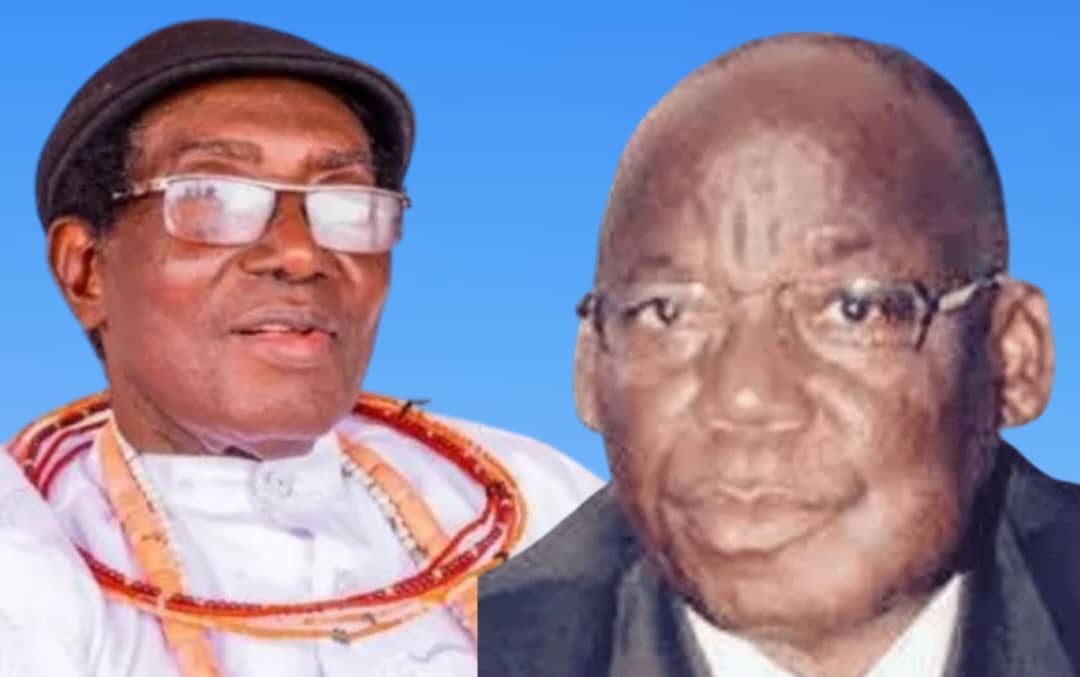WELLINGTON OKIRIKA: He could sacrifice his life for his people — Brig. Gen. Yeri

Brigadier General John Ewerekumoh Yeri (rtd), who served as Governor of defunct Bendel State between 1990 and 1991, and then continued as Governor of Edo State until January 1992 after Bendel State was split into Edo State and Delta State, once attested about Chief (Dr.) Wellington O. Okirika (JP) when he said, "He could sacrifice his life for his people" in reference to Okirika's activism for the political and economic independence of the Ijaws.
The military governor's singular partnership with Okirika, the Bolowei of the ancient Gbaramatu Kingdom, which was described as "one forged between barracks pragmatism and creek-born idealism", is captured in chapter 18 of the book, "Mr. 13% Derivation Fund: The Life and Legacy of Chief (Dr.) Wellington O. Okirika CON", authored by Amb. (Dr.) Jerry Abiri, thus:
Okirika's first audience in Government House came with an unusual plea: use the tiny 1.5 per cent OMPADEC fund to build a proper river-market for Ijaw traders. Markets were normally a local council duty, yet security reports confirmed the economic boost, and Yeri signed off. Construction began, the blueprint still stands—a physical marker of the activist's skill at turning welfare into a matter of state urgency.
Next, Federal Gazette sheets listed a new local government for Ijaw territory—with headquarters originally typed "Oporoza". Overnight, lobbying shifted the capital to Koko and an Itsekiri town. Okirika returned to Benin incandescent. The governor could not undo Abuja's documents, but he watched the activist mobilize royal fathers, petition after petition, until Warri South-West LGA was finally restored years later.
The author, Amb. Abiri, further stated that: Brig. Gen. Yeri never shared cash with Okirika; he did observe him spend his own resources in airfare, hotels, dossiers—whatever moved derivation debates from 1.5 to 13%.
Yeri was quoted partly as saying, "What he [Okirika] hates, above everything, is oppression."
For Yeri, traits he identified and salutes in Okirika are: human nationalist (that demands equality, not dominance, among the Ijaw, Itsekiri, Urhobo), relentless lobbyist (who shuttles Warri-Benin-Lagos at personal expense), and a builder (who built markets, jetties, schools, each tied to oil-fund fairness).
"If Wellington Okirika has changed," Yeri concludes, "he has changed only for the better. He still fights oppression—by law, by persistence, never by hate."
In conclusion, the soldier [Yeri] and the activist [Okirika] parted ways with the creation of Delta State, yet their brief alliance remains a snapshot of how principled agitation and official authority can, for a moment, converge to lift forgotten communities
Yeri, who was the first military governor of the newly created Edo State, would later hand over to an elected civilian governor (John Odigie Oyegun) in January 1992 during the administration of General Ibrahim Babangida.
#penglobalexposition #testimonial #ChiefWellingtonOkirika



